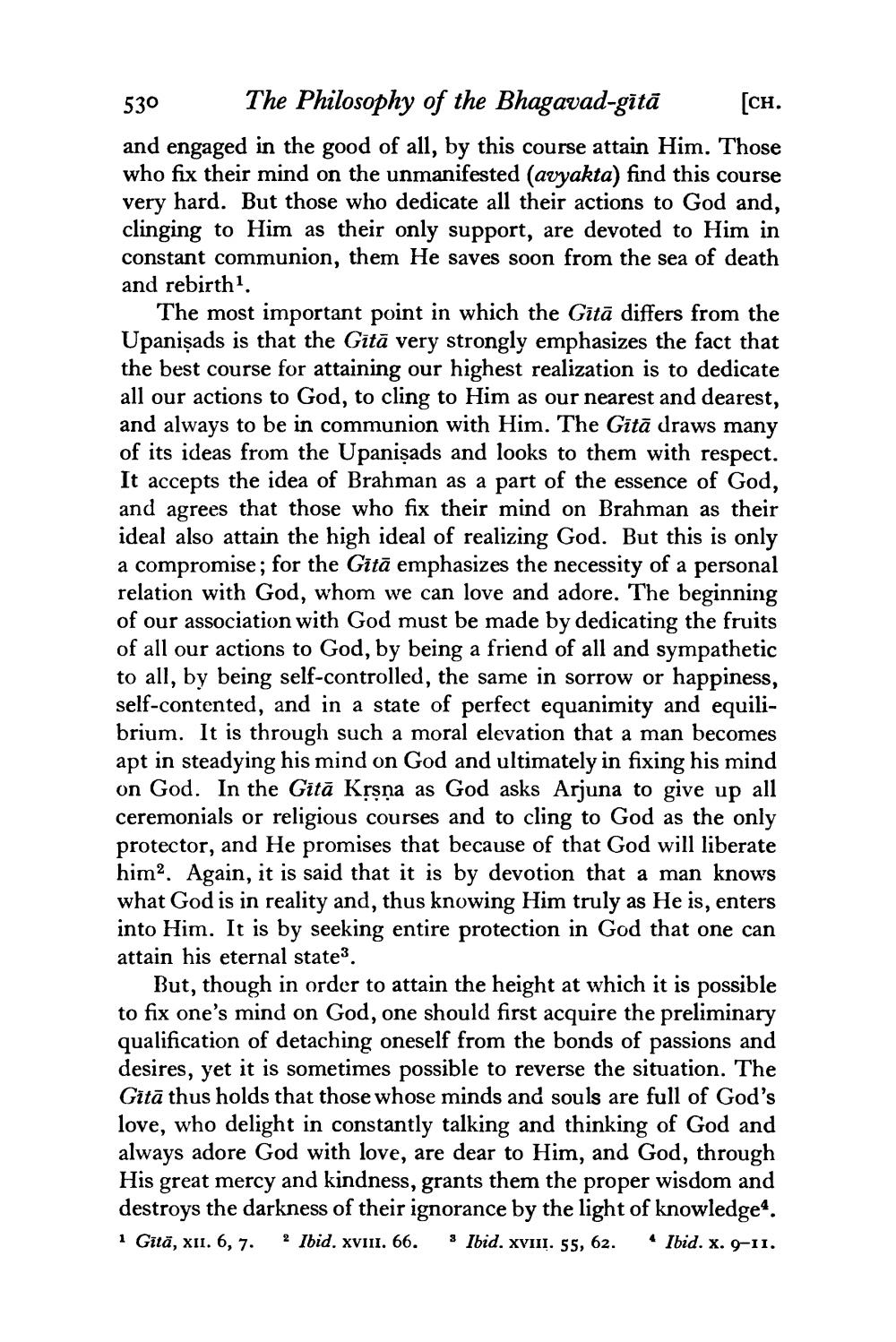________________
530 The Philosophy of the Bhagavad-gitā [CH. and engaged in the good of all, by this course attain Him. Those who fix their mind on the unmanifested (avyakta) find this course very hard. But those who dedicate all their actions to God and, clinging to Him as their only support, are devoted to Him in constant communion, them He saves soon from the sea of death and rebirth.
The most important point in which the Gitā differs from the Upanişads is that the Gitā very strongly emphasizes the fact that the best course for attaining our highest realization is to dedicate all our actions to God, to cling to Him as our nearest and dearest, and always to be in communion with Him. The Gītā draws many of its ideas from the Upanişads and looks to them with respect. It accepts the idea of Brahman as a part of the essence of God, and agrees that those who fix their mind on Brahman as their ideal also attain the high ideal of realizing God. But this is only a compromise; for the Gitā emphasizes the necessity of a personal relation with God, whom we can love and adore. The beginning of our association with God must be made by dedicating the fruits of all our actions to God, by being a friend of all and sympathetic to all, by being self-controlled, the same in sorrow or happiness, self-contented, and in a state of perfect equanimity and equilibrium. It is through such a moral elevation that a man becomes apt in steadying his mind on God and ultimately in fixing his mind on God. In the Gitā Krsna as God asks Arjuna to give up all ceremonials or religious courses and to cling to God as the only protector, and He promises that because of that God will liberate him?. Again, it is said that it is by devotion that a man knows what God is in reality and, thus knowing Him truly as He is, enters into Him. It is by seeking entire protection in God that one can attain his eternal state3.
But, though in order to attain the height at which it is possible to fix one's mind on God, one should first acquire the preliminary qualification of detaching oneself from the bonds of passions and desires, yet it is sometimes possible to reverse the situation. The Gitā thus holds that those whose minds and souls are full of God's love, who delight in constantly talking and thinking of God and always adore God with love, are dear to Him, and God, through His great mercy and kindness, grants them the proper wisdom and destroys the darkness of their ignorance by the light of knowledge4. · Gitā, XII. 6, 7. ? Ibid. xvIII. 66. Ibid. XVIII. 55, 62. Ibid. x. 9-11.




